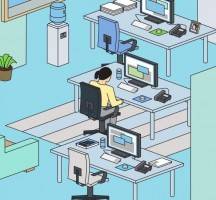June 26, 2018
London seen as most desirable city in the world to work, but the UK falls in country standings
 A comprehensive study into global talent mobility claims that London is the most desirable city for overseas workers worldwide, beating New York, Berlin and Barcelona. In the four years since the first study conducted by The Boston Consulting Group (BCG) and totaljobs, the UK has dropped three places in overall attractiveness, from second to fifth in the country rankings. Decoding Global Talent 2018 (registration required), claims to be one of the most expansive studies every undertaken into workforce migration trends. Shining a spotlight on the UK’s attractiveness to global talent, the research reveals the world’s most desirable destinations for work.
A comprehensive study into global talent mobility claims that London is the most desirable city for overseas workers worldwide, beating New York, Berlin and Barcelona. In the four years since the first study conducted by The Boston Consulting Group (BCG) and totaljobs, the UK has dropped three places in overall attractiveness, from second to fifth in the country rankings. Decoding Global Talent 2018 (registration required), claims to be one of the most expansive studies every undertaken into workforce migration trends. Shining a spotlight on the UK’s attractiveness to global talent, the research reveals the world’s most desirable destinations for work.











 The allure of London for Generation Y appears to be fading, according to
The allure of London for Generation Y appears to be fading, according to 



 Nearly two-thirds of employees who claim to have experienced a toxic workplace culture say the compensation they received did not make up for the emotional distress caused, according to new research from
Nearly two-thirds of employees who claim to have experienced a toxic workplace culture say the compensation they received did not make up for the emotional distress caused, according to new research from 
 The much discussed idea of Zoom fatigue turns out to be a real phenomenon according to new peer reviewed research from Stanford academics. The study published in the American Psychological Association’s journal
The much discussed idea of Zoom fatigue turns out to be a real phenomenon according to new peer reviewed research from Stanford academics. The study published in the American Psychological Association’s journal 
 For now, just forget the
For now, just forget the 


 Gensler has announced the results of its Workplace Survey 2016 for both
Gensler has announced the results of its Workplace Survey 2016 for both 







May 12, 2022
From commuting to computers, finding balance in the hybrid workplace
by Anni Hallila • Comment, Flexible working, Wellbeing